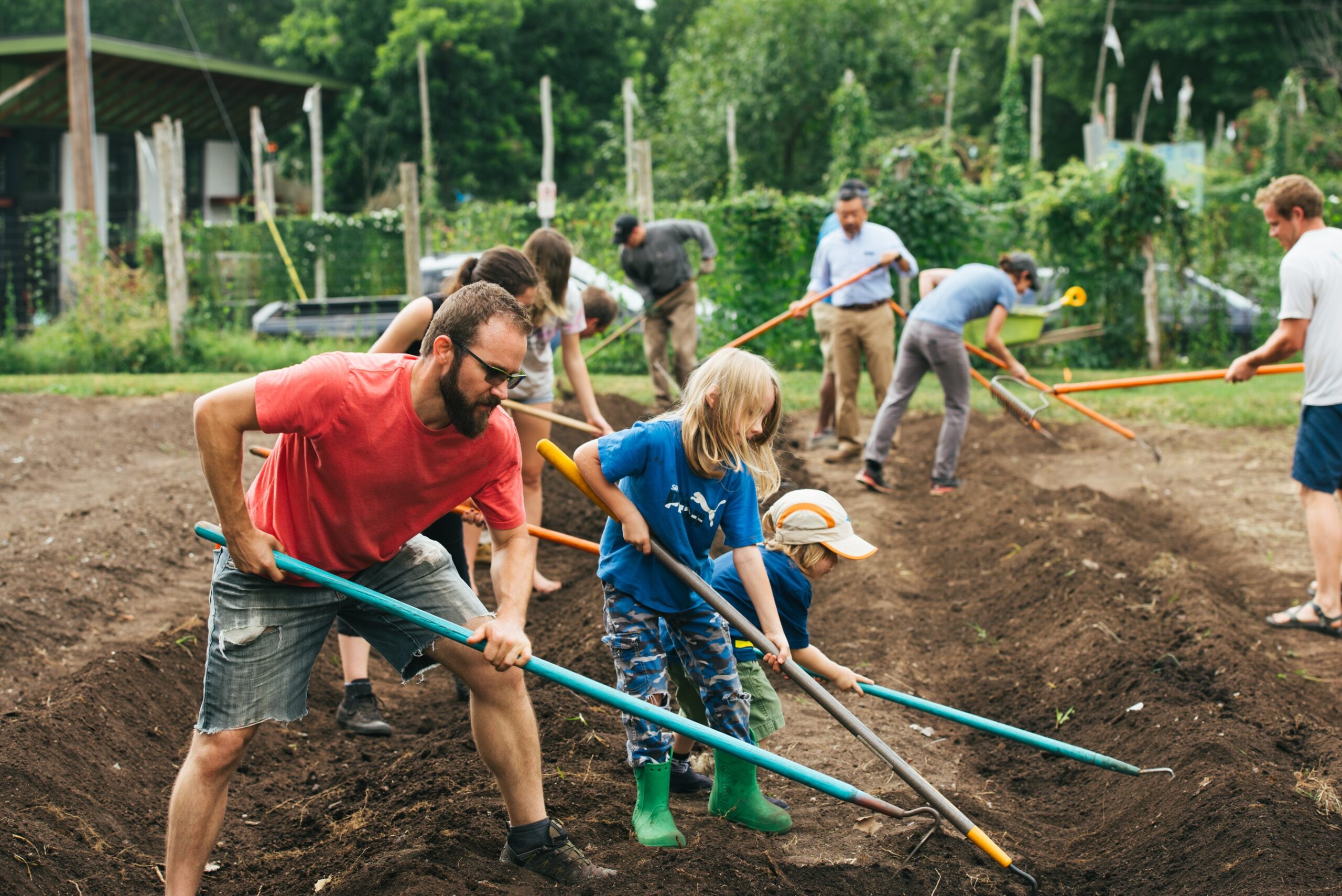The Good News of Fresh Produce
The Good News of Fresh Produce
By Kelly Dunlap
If you visit Farm Church on a Sunday morning, you might catch rows of tomatoes out of the corner of your eye, and church-goers will likely have fresh dirt under their fingernails when they pass the peace.
Farm Church is not a metaphor. The small congregation in Durham, North Carolina farms a small plot of land together every Sunday before gathering just a few feet away to worship.
This unique church model was dreamed up by pastor Ben Johnston-Krase and founded alongside two other pastors and with support from the PCUSA. The pastors, who had shepherded more traditional congregations, were energized by the idea of a church whose primary unifying mission was to respond to a social problem. Finding spiritual and social meaning in farming, they determined to focus on the problem of food insecurity and to respond by growing food to give away.
Now in its seventh year, Farm Church donates produce to local nonprofits and churches who put it directly into the hands of those experiencing food insecurity. Between January and August of 2022, the church harvested and gave away over 1,000 pounds of food. The vast majority of that weight came from leafy greens, with heavier vegetables like carrots and onions still growing.
Ben, who now leads Farm Church in the role of co-chaplain, explains that through their labor and donations, they’re making the statement: “People are worthy of good food – food that is fresh and nutritious.”
***
In addition to the atypical Sunday schedule, worship location, and specificity of mission, the church offers a different kind of Christian community.
Ben says they set out from the beginning to be a place for those who were wounded – some by the church itself. Many who attend Farm Church are not inclined to show up at a church building on Sunday. Its location makes the church a “less baggage-laden environment,” says co-chaplain Cole Parke-West.
“It’s the love and care between us that functions as the ‘mortar’ in our brick-free church,” they recently shared in an instagram post.
While the church is unmoving in their mission to farm, they welcome an expansive theology and allow worship rhythms to evolve. “We’re about the radical welcome of Christ,” Ben explains. To be a welcoming place of spiritual nourishment for those not as comfortable with traditional church, they forgo some church elements like membership and creeds and welcome wisdom from outside the Christian tradition, alongside doubt and questions.
Ben sums up the church’s core theological message: “We articulate the good news by giving away a lot of food.”
***
The co-chaplains have words of both encouragement and caution for those who may want to begin a similar community or incorporate elements of Farm Church into their own.
Check your capacity, Ben cautions. Audit what consumes your church’s time and energy. Then ask: Can we drastically shift attention and resources from typical demands (like building maintenance and budget concerns, for example) to nontraditional priorities?
Cole agrees: “It’s not a matter of making minor tweaks while maintaining the status quo.” In addition to auditing your capacity, audit the power dynamics in your community. They urge careful consideration of whose voices frame the social problem and the solution you might want to tackle. By centering the voices of those who have traditionally held power and privilege, you might unintentionally perpetuate the unjust dynamics inherent in the social problem you’re trying to address.
Farm Church admits that this is not necessarily easy or straightforward. Its own community is made up of people who hold privilege as white Americans and who are not themselves food insecure. Still, the congregation maintains that diverse representation and ceding power to the historically marginalized should be a core value, and it’s one they’re pursuing.
Cole says the result will be a “radical re-centering” that will – or should – be transformational. They admit that transformation and new ministry models often come with risk, “but isn’t any act of faith risky?”
This story is part of Lake Institute’s story collection, the Faithful Generosity Story Shelf, which highlights congregations and other religious organizations who have sought to use their assets and resources in creative—and sometimes surprising—ways as an expression of faithful giving.
Each entry in our Story Shelf is short enough to be read and discussed during a committee meeting or other group gathering. Our hope is that these accessible vignettes will spark new questions, conversation, and imagination among clergy and laity about what might be possible with the funds, buildings, land, and other resources in their care. If you know a story that should be included in the Story Shelf, suggest it here.
Subscribe
Insights is a bi-weekly e-newsletter for the religious community and fundraisers of faith-based organizations that provides:
- Reflections on important developments in the field of faith and giving
- Recommended books, studies and articles
- Upcoming Lake Institute events

